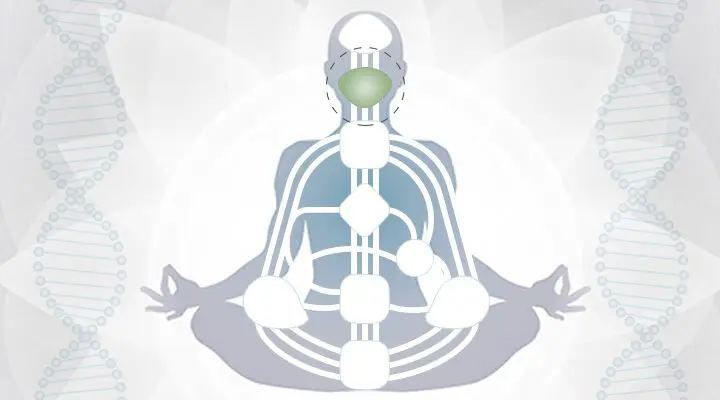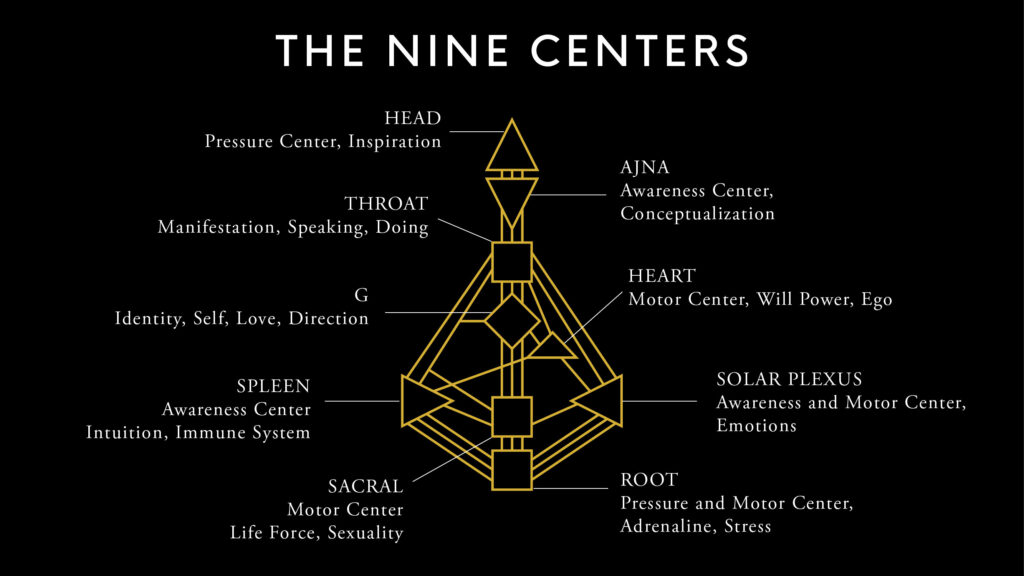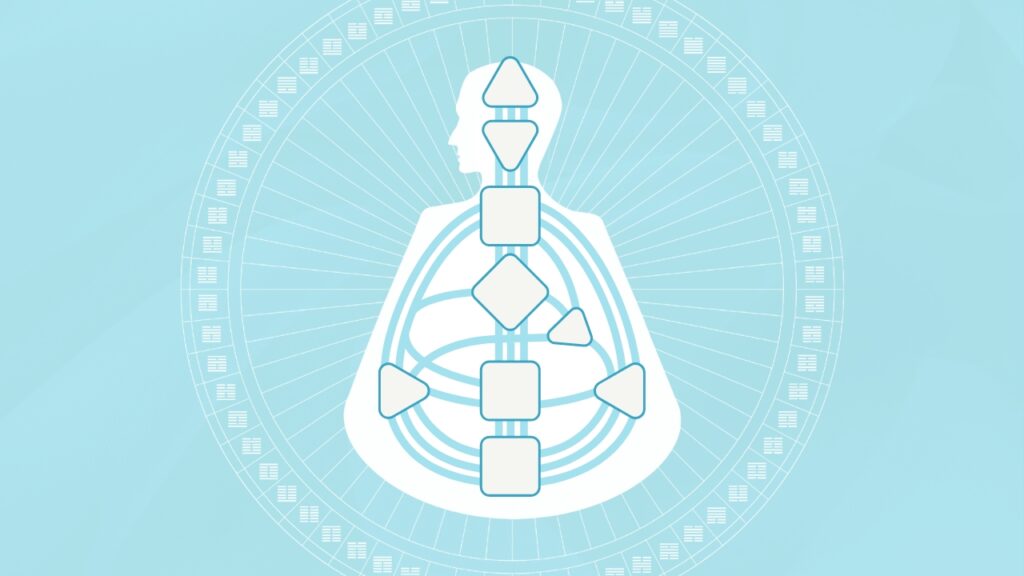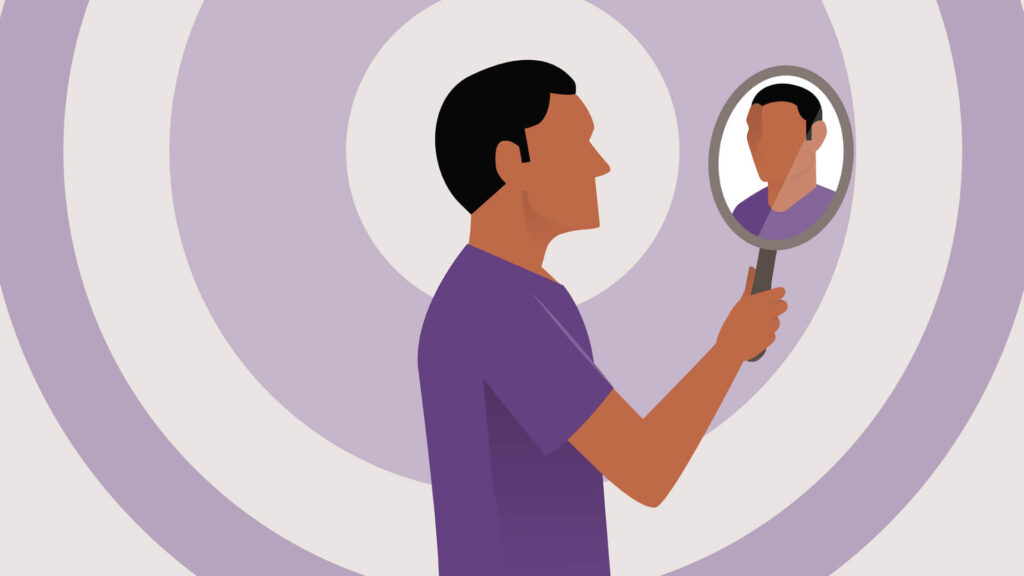Role of Centers in the Human Design System: What They Mean and How to Balance Them

Human Design is a fascinating system that combines ancient wisdom with modern science to provide a unique approach to understanding oneself. At the core of this system are the Centers, which are energetic hubs that influence how we process and experience life.
There are nine Centers in total, each representing different aspects of our personality and behavior. Understanding the role of these Centers is crucial to unlocking our true potential and achieving personal growth. In this blog post, we will explore the significance of the Human Design Centers and how they impact our lives.
Understanding the Role of Centers in Human Design
In the Human Design System, Centers act as energetic centers of intelligence that govern specific aspects of our lives, including emotions, thoughts, and behaviors, shaping our responses to the world around us. Some essences are considered defined, meaning their energy is consistent and reliable, while others are undefined, indicating fluctuating and open energy.
This interplay of defined and undefined essence creates a unique blueprint that defines our individuality and personal characteristics. By understanding its work, including Reflector Human Design, we can gain profound insights into our strengths, vulnerabilities, and ways to achieve balance.
Embracing the wisdom of Reflector Human Design allows us to tap into the ever-changing energy of the lunar cycle and find our place of authenticity within it.
Overview of the Nine Centers and Their Significance

The nine Centers in Human Design are the Head, Ajna, Throat, G Center, Heart, Sacral, Spleen, Solar Plexus, and Root core. Each essence governs distinct aspects of our lives. The Head essence is responsible for inspiration and ideas, while the Ajna core handles our thought processes and mental clarity.
The Throat core plays a crucial role in communication and manifestation, while the G core is linked to our identity and sense of direction. The Heart core governs willpower and ego, the Sacral core powers vitality and life force, and the Spleen essence relates to intuition and survival instincts.
The Solar Plexus Center controls emotions, and the Root essence influences our stress response and sense of urgency.
Impact of Undefined Centers on Individual Traits
Undefined Centers in our Human Design chart indicate areas where we are susceptible to external influences and conditioning. These open cores act like sponges, absorbing energies from the people and environments around us.
This can lead to confusion about our true feelings and beliefs, as we may adopt the thoughts and emotions of others without realizing them. For example, an individual with an undefined Heart essence might seek validation from others, feeling unworthy without external recognition.
By recognizing and embracing these undefined cores, we can liberate ourselves from external pressures and reclaim our authentic selves.
Embracing Defined Centers and Their Influences

On the other hand, the defined essence in our Human Design chart represents areas where we consistently possess certain energies and traits.
They shape our unique qualities and abilities. Embracing these defined cores allows us to harness their strengths fully. For instance, someone with a defined Throat core might be a natural communicator, easily expressing their ideas and desires.
How Centers Shape Decision-making Processes
The Centers significantly influence our decision-making processes. Those with a defined Solar Plexus core, for instance, often experience intense emotional waves that can impact their choices. They might find it beneficial to wait for emotional clarity before making important decisions.
Individuals with an open Head core, on the other hand, might struggle with overthinking and indecisiveness. In such cases, seeking advice from others or engaging in mindful practices can help in making balanced decisions.
Strategies for Balancing Undefined Centers

Balancing undefined cores is essential for maintaining emotional well-being and inner harmony. One effective strategy is grounding through practices like meditation, spending time in nature, or engaging in physical activities.
Grounding helps us release foreign energies accumulated in our undefined cores, enabling us to reconnect with our true selves. Additionally, setting clear boundaries and practicing self-awareness can prevent us from taking on others’ emotions or expectations.
Strategies for Embracing Defined Centers
To embrace and optimize the potential of defined Centers, self-awareness is key. Reflecting on our strengths and understanding our limitations allows us to make conscious choices aligned with our true selves. Leveraging the power of defined cores also involves recognizing and appreciating our unique attributes and talents.
Engaging in activities that bring joy and fulfillment can amplify the positive energy of these cores and contribute to a sense of purpose and satisfaction.
Interplay Between Centers and Relationships
The interplay of essence in relationships greatly influences the dynamics between individuals. Defined cores may complement or challenge each other, shaping how people interact and understand one another.
Recognizing the energetic dynamics between partners, friends, or colleagues can lead to more harmonious and empathetic relationships. Additionally, open cores can create opportunities for mutual growth through shared experiences and insights.
Role of Centers in Self-awareness and Personal Growth

Self-awareness is the cornerstone of personal growth, and the Human Design Centers play a pivotal role in this journey. By understanding the strengths and vulnerabilities associated with each core, we gain valuable insights into our thought patterns, emotional responses, and behavioral tendencies.
This awareness empowers us to break free from conditioned behaviors and make conscious choices aligned with our true selves. Embracing and balancing our cores allows us to cultivate a deeper connection with ourselves, leading to personal growth, inner peace, and holistic well-being.
Conclusion: Harmonizing Centers for Holistic Well-being
In conclusion, the Human Design Centers offer a profound framework for understanding our individuality and navigating life’s complexities. By acknowledging the impact of defined and undefined essence, we can cultivate self-awareness and make informed decisions that resonate with our authentic selves.
Embracing our unique traits and potential enables us to lead fulfilling lives, harnessing the power of our cores to manifest our dreams and aspirations. Moreover, recognizing the interplay of essence in relationships fosters empathy and enriches our connections with others.
Harmonizing our cores is the key to unlocking our holistic well-being and embracing a life of purpose, authenticity, and growth.




